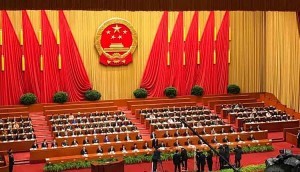On Sunday, the National People’s Congress, which is the Chinese Parliament voted overwhelmingly to amend the Chinese Constitution and abolish the Presidency term limits allowing President Xi Jinping to stay in office indefinitely.
Last month, the Congress announced its decision to abolish the two-term limit to the presidency. The announcement was not well received by the international community, which saw a liberalized future go up in flames. Out of 2.964 votes in total, 2.958 were in favour, two against, three abstentions and one blank. In one swift vote, the rubber-stamp legislature opened up the possibility of Xi being president for life, returning China to the one-man-rule system that prevailed during the era of Mao Zedong and the emperors who preceded him.
The term limit was written into the 1982 Constitution in the aftermath of the disastrous 1966-1976 Cultural Revolution in part to prevent the excesses of one-man rule of the Mao Zedong era.
Foreign Minister Wang Yi pointed out last week during a press conference that head-of-state diplomacy “plays a pivotal role (in state-to-state interaction) and has irreplaceable strategic value” and that Mr Xi’s “leadership style and charisma have earned him and his country many good friends among foreign leaders”.
However, on paper, deleting term limits on Xi’s ceremonial post as president from China’s constitution is a modest change compared with the vast powers he has amassed since becoming ruling party leader in 2012. In addition to scrapping the limitation that presidents can serve only two consecutive terms, the amendments also inserted Xi’s personal political philosophy into the preamble of the constitution, along with phrasing that emphasizes the party’s leadership.
The bold move by Xi aims at strengthening the party’s control over a constantly modernizing society and restore China to what he believes to be its rightful place in the forefront of the international community. This vast agenda can only be achieved through his personal leadership, according to his allies.
Source: thegreekobserver
Ask me anything
Explore related questions





